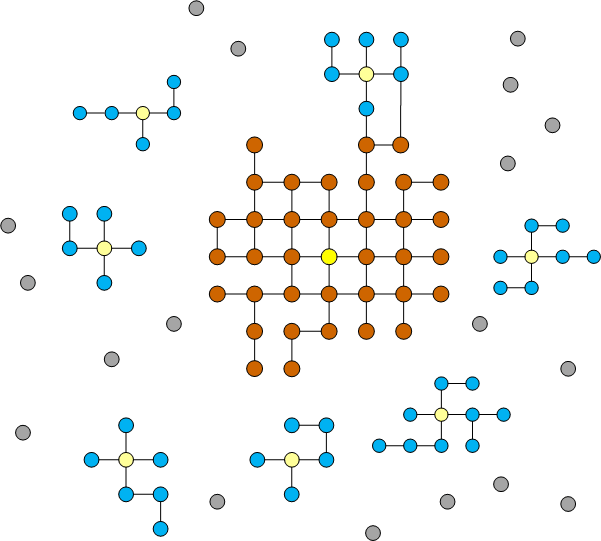 A year or so ago, I started a skype account when I was planning a trip abroad. It was helpful for making international calls, but I didn't use it for anything else and soon forgot about it. Very recently, I started using it again, not for transactions, but for what I guess counts as social networking, a neologism that is perhaps not so neo but that-- doubtless anachronistically if not misanthropically-- I find very distasteful. I don't like the gerundive, and I am appalled by the docility with which seemingly everyone is willing to abandon the work of more complex and authentic seeming (I say authentic seeming to signal my awareness that authenticity is thoroughly ideological, but nevertheless has real effects)social relations such as friendship, in favor of the promise of such relations that 'social networking' offers. As Horkheimer & Adorno wrote:
A year or so ago, I started a skype account when I was planning a trip abroad. It was helpful for making international calls, but I didn't use it for anything else and soon forgot about it. Very recently, I started using it again, not for transactions, but for what I guess counts as social networking, a neologism that is perhaps not so neo but that-- doubtless anachronistically if not misanthropically-- I find very distasteful. I don't like the gerundive, and I am appalled by the docility with which seemingly everyone is willing to abandon the work of more complex and authentic seeming (I say authentic seeming to signal my awareness that authenticity is thoroughly ideological, but nevertheless has real effects)social relations such as friendship, in favor of the promise of such relations that 'social networking' offers. As Horkheimer & Adorno wrote: The culture industry [read: social networking technology] perpetually cheats its consumers of what it perpetually promises...; the promise, which is all the spectacle consists of, is illusory: all it actually confirms is that the real point will never be reached, that the diner must be satisfied with he menu. In front of the appetite stimulated by all those brilliant names and images there is finally set no more than a commendation of the depressing everyday world it sought to escape.
I am no Frankfurt School Marxist (I could just as easily, and in fact more comfortably, have used Baudrillard to comment on how 'social networking' offers the illusion of private relationships 'to hide a profound recognition and acceptance of the public verdict. At bottom individuals know themselves (if they do not feel themselves) to be judged by their objects, to be judged according to their objects, and each at bottom submits to this judgment, though it be by disavowal'.
Here it is a question of more than the imperative of conformity issuing from a limited group, or that of upward mobility issuing from global society: it is a question of an order in which each group or individual can come to locate itself in the very movement which makes it exist socially.
Of course, social networking technologies exist to distract us from our real and unspeakable atomization and alienation. If you have a list of hundreds of 'friends', how can you be friendless? If you are always on and everyone is always available to you, how can you be lonely? If you have a complete profile, how can you feel empty?
I would reject the greater pieties of the exponents of the Frankfurt School (I say 'would' because I share more of them than I like to admit, although I resist them strenuously) by noting that the technologies in themselves (the 'signifiers') have no moral content (no 'signifieds') outside the particular instance of their utilization (which is not to discount their cultural significance, or deny their ideological force).
Theoretically, in other words, there is no reason why as 'pure' technologies, skype (or a blog, for that matter) couldn't function as mechanisms to facilitate real social relations.
So I am giving it a try, and enjoying it so far. (But of course, no one's arguing that the productions of the culture industry including social networking technologies aren't enjoyable; that's precisely how they work).
Yesterday I had the uncanny experience of speaking to a friend 6,000 miles and 7 hours away; my voice in his room; whereas he could not speak to me. Skype supports a chat feature, so I spoke and he wrote. There is a quality of distortion to such a communication, as if talking with the spirit world through a ouija board. He described himself as mute; I was a ghost in a machine.

No comments:
Post a Comment